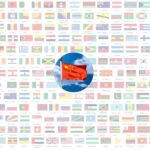

Vlog and Blog
We are a group of individuals transcending different cultures, embracing a globalized way of life. With an international sensibility, we pursue novelty, prioritize quality of life, and are passionate about living life to the fullest.
Some of us originate from Shanghai, residing abroad; others come from all corners of the world, dwelling in this vibrant and captivating metropolis, commonly known as the “Magic City” (MO DU SHANGHAI)
The current bloggers are:
AMELIE ROTTERDAM / SHANGHAI
A Shanghai lady residing in the Netherlands. She is the founder of ShanghaiTraveller and a member of the Specialty Committee member of Information of WFCMS (World Federation of Chinese Medicine Societies)
XIAOLING HEIDELBERG
A new Shanghainese living in Germany (a beautiful Chongqing girl), currently working as a volunteer sports coach.
RICK HONGKONG / SHANGHAI
A native Shanghainese living in Hong Kong, with an MBA and extensive experience in the healthcare industry.
Shanghai info
Food
Welcome to our culinary exploration of Shanghai’s local delicacies! From traditional dishes to breakfast favorites, unique specialties, and the opportunity to savor international cuisine in Shanghai. Join us as we indulge in the vibrant flavors and diverse culinary offerings of this bustling city!
Must-visit
Discover the must-visit attractions in Shanghai, from iconic landmarks to hidden gems. Take a leisurely stroll through the city’s vibrant streets, immerse yourself in the local lifestyle, or unwind in the charming parks. Experience the unique charm of Shanghai beyond the tourist spots!
More..
Explore the essentials of living in Shanghai beyond food and attractions. Get insights on visas, housing, transportation, communication, socializing, culture, healthcare, and education for children. Gain a comprehensive understanding of Shanghai’s lifestyle for a smooth and fulfilling experience.

Go To Global
Introducing our international news segment, focusing on all things travel! Stay updated with the latest travel-related news from around the world. Join us for exciting updates, destination highlights, and travel tips. Don’t miss out!
Bring My Dog
Welcome to our special column dedicated to traveling with your furry friend! Discover all the tips, guidelines, and fascinating stories about exploring the world with your dog. Join us for an unforgettable journey of adventures and bonding with your beloved pet!

Shanghai Traveller
CHINA MEDIA
Douyin / WeChat
魔都海客 @ShanghaiTraveller






